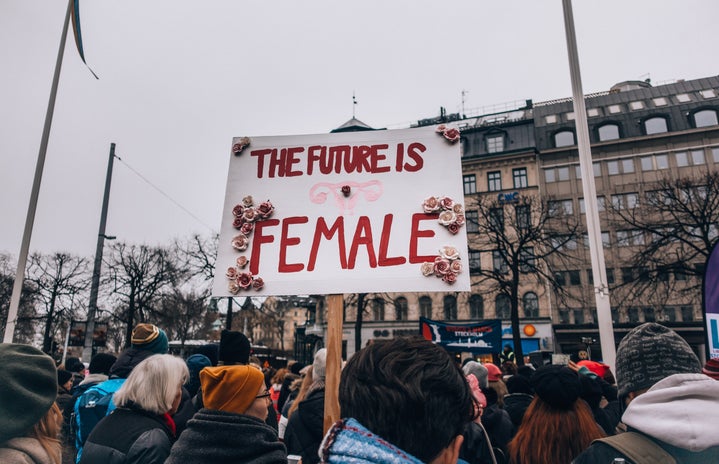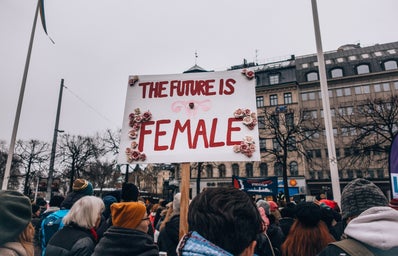Today, you belong to one of three groups. Either you understand and use the word misogyny when it’s needed, you criticize people for using the word because you think “society learned a new word and has run with it”, or you just don’t know what it means. To put us on the same page, Dictionary.com has defined misogyny as “hatred, dislike, or mistrust of women, manifested in various forms such as physical intimidation and abuse, sexual harassment and rape, social shunning and ostracism, etc.”. I personally think that “misogyny” is a stronger and more appropriate word to use in many circumstances than “sexism”, as it narrows the focus, as the prevalence of discrimination against women is something all women have experienced. Patriarchy is the footing on which capitalism has been built. Misogyny and racism are products of capitalism and essential to its prevalence. They are symptoms of the oppressive grip capital has over lives.

Internalized misogyny is an aspect of this newly-popularized term that is not discussed enough. While women Trump supporters are the poster face for internalized misogyny, we forget that it manifests itself into our lives in so many ways, in ways that have proven to have lasting effects but that we have normalized because of the power the patriarchy holds over us. Sometimes I catch myself perpetuating my own internalized misogyny, proving how normal it has become to hate other women and tear each other down. Maybe you’ve put down women who dress shamelessly because you think “they don’t respect themselves”. Perhaps you’ve felt strong feelings of anger towards a new woman your ex has started dating. Have you ever proudly proclaimed that you aren’t like other girls, implying that, somehow, these “other girls” are inferior to you? Maybe you’ve had your own aversions to women who loudly speak out on social justice issues including racism, sexism, and all other aspects of intersectional feminism. I think so many women freely act on these judgmental impulses towards other women because they don’t realize that these common actions and thoughts are products of the patriarchy – the men have successfully pitted us against each other, thus amplifying the effects of the system on marginalized groups of women.
I’m not saying that I have never been guilty of showing my own internalized misogyny. However, I’ve been making a conscious effort to break down my own internalized biases, and I think it’s so important for all women to be aware and do the same. In this system, women already have an underhand. It’s time we start breaking down our own internalized biases about each other and start to use our divine female power to work together and support one another in the fight of our lives. If we can’t turn to other women to trust they have our backs, who can we turn to?



